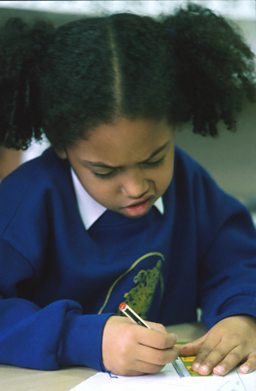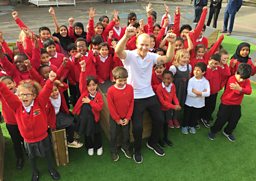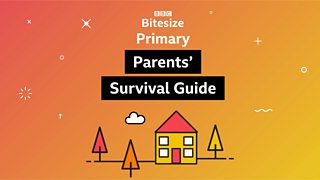5 tips for handling back-to-school anxiety

Have confidence in your choices - we'll help
With Reception and Years 1 and 6 mooted to return to school across England, parents of primary-age children have been coming to terms with managing their kids’ expectations and feelings - not to mention their own.
Families are not one-size-fits-all.
The ÃÛÑ¿´«Ã½ Bitesize Primary Parents Survival Guide asked Penny Tassoni, early years educator, some of the tougher ones.
- What if not all of their friends are there?
- Is there friction between siblings staying home and those returning to classrooms?
- Do parents of primary years kids need some respite from the 24/7 grind of lockdown responsibilities?
“Families are not one-size-fits-all,” says Tassoni, who has many suggestions to help parents make choices for children as individuals.
“All parents have had to explain tricky situations to their kids before. The main thing children need from adults is confidence.”
1. Educators will support you
Most schools are sending detailed information packs to parents, outlining on-site precautions and safeguarding: smaller learning groups, social distancing practices, and sporting activities kids can participate in without coming into contact with classmates.
Of course, some local authorities and teachers’ unions are uneasy about resuming at-school education while new cases of COVID-19 are still occurring.
Parents who decide to keep their children home won’t be penalised for that judgement call - particularly if that child or another family member is part of a ‘vulnerable’ health group.

2. Watch their body language
“Ask kids what they know, or what they’ve heard,” Tassoni suggests.
Children often respond to things they’ve overheard, whether that’s from adult conversation or snippets on the news. Encourage children to talk about what’s on their mind. They could be anxious about going back because of unfinished homework, or missing friends. Body language is key.
“We all show physiological changes under stress. Are they losing sleep or having nightmares? Are they overeating, or not hungry at all? Funny tummies in particular are a sign of stress.”
Reassure kids about school by accentuating positives, but don’t over-promise.
3. Parents should decide
If children are given the responsibility of making the decision to go back, it may just store up trouble for later. Young kids can’t see the big picture, and suddenly there’s an unhelpful precedent of juvenile decision-making that they can latch onto.
You can still step back and wait and see.
Plus, if you really feel anxious about sending kids back, it will be obvious: lots of questions about hand-washing and social distancing, for example, are not reassuring signals for the child.
“Children pick up on body language and tone of voice,” says Tassoni.
“Under the current guidelines you can still step back and wait and see.”
4. 'Bubbles' might be better
In smaller groups, the changes might be positive, especially for older children. More focussed attention and more opportunities for children to talk in class are just two of the hidden benefits of temporarily reduced class sizes.
Those 'bubbles' they're in might just be a better way of learning.
If a child not in the years returning to classrooms resents not being able to go back when siblings are, make sure they have opportunities to choose fun activities at home; by the same token, find enjoyable things for returners to do with siblings once they come home.
5. Lay off the Whatsapp Olympics
Parents are anxious about peer pressure from other adults, so it’s good to socially distance from flashpoints of opinions as found on parental chat groups.
Parenting isn’t a democracy.
“Parenting isn’t a democracy. What other parents are doing isn’t your problem,” advises Tassoni.
“Focus on what feels the right decision in the broadest sense. The parenthood journey has moments of intense guilt, no matter what you do.
"Parents also need to have their children understand that school could close again, like a hokey-cokey, but teachers are providing a good educational and emotional framework for everyone who does go back.”
And hopefully, sooner rather than later, school can start looking a bit more like this again:

-
![]()
How to manage lockdown emotions
Eli and Debs hear from mum Hannah whose 5 year-old son has begun to lash out.
-
![]()
How to deal with puzzling child behaviour
Eli and Debs hear about puzzling child behaviour in lockdown from dad Tom, whose daughter Olive has started doing some bizarre new role playing.
-
![]()
Learning 'hard' subjects with Bobby Seagull
Eli and Debs are joined by teacher and University Challenge finalist Bobby Seagull who shares his best advice for getting to grips with tricky topics.

